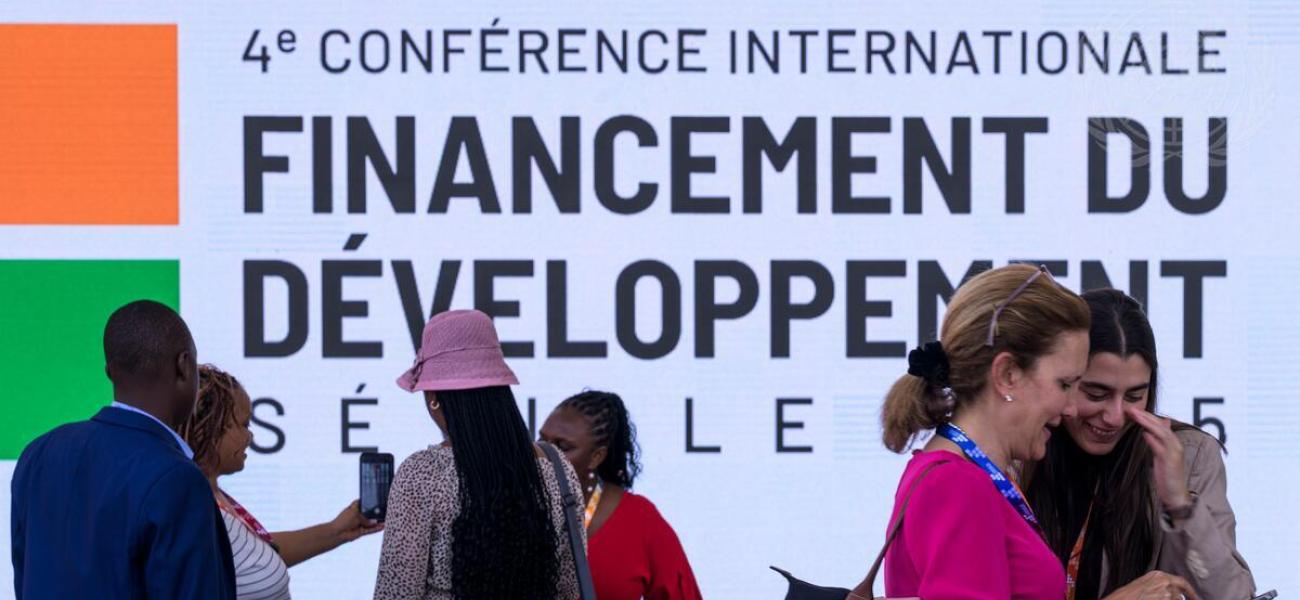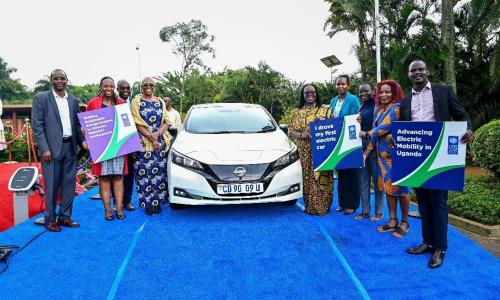As global leaders gathered in Sevilla for the Fourth International Conference on Financing for Development (FfD4), a pressing question loomed: has this moment addressed the systemic inequities that have long hindered African economies from securing sustainable development financing?
For over two decades, the financing for development (FFD) process has oscillated between promise and disappointment. Today, the stakes could not be higher. Africa’s pursuit of the Sustainable Development Goals (SDGs) and Agenda 2063 hinges on a financial architecture that prioritises justice over charity and transformation over stagnation.
African countries have actively shaped the FfD4 outcome document (Compromiso de Sevilla), demonstrating their commitment to reform the international financing system. While the outcome document includes provisions that acknowledge Africa’s priorities, its reliance on recycled commitments undermines the continent’s repeated call for accountability.
As the African proverb reminds us, "Fine words don’t produce food." The Compromiso de Sevilla must now be translated into concrete actions through robust accountability frameworks to deliver increased financing for Africa's sustainable development.
Geopolitical tensions are eroding trust in multilateralism and threatening meaningful outcomes. This time, the consequences of inaction are dire, exacerbating existing challenges and undermining the development prospects of Africa and the world.
The Contours of a Just Outcome
For Africa, Sevilla must avoid becoming another false dawn.
The final outcome document contains elements that, if fully implemented, could support Africa's vision of controlling and directing its own economic and financial flows. However, gaps and weaknesses persist.
1. Domestic Resource Mobilization: From Leakages to Leverage
Africa's potential to mobilise domestic resources is immense. Yet, African countries lose US$500–600 billion annually to illicit financial flows, inefficient public spending, redundant tax incentives, and inefficient revenue systems. These forgone revenues represent a missed opportunity for Africa, and a just outcome would involve robust measures to plug these leakages and into sectors that can catalyse growth and structural transformation. The FFD4 outcome document recognises the need to strengthen tax systems and combat illicit flows (paras 27-29). Additional support is needed from development partners to boost the capacity to do so. For example, the document calls upon development partners to at least double their support to developing countries for strengthening Domestic Resource Mobilisation (DRM) by 2030.
This new commitment is a positive step, especially given that Official Development Assistance (ODA) support for DRM in Africa remains extremely low, at just 0.24 per cent of total ODA ($165 million) in 2021. To fully realize transformation of country tax administrations, OSAA (Office of the Special Advisor on Africa) has advocated for allocating at least 10 per cent of ODA to digitalizing tax administrations. This could revolutionise DRM in Africa and reduce the cost of tax collection, which is currently estimated at 60 per cent, considerably higher than in Asia. For instance, countries like Ghana and Rwanda have reaped increased tax collection of up to 30 per cent thanks to tax system modernization. Hence, strengthening the tax system, including moving towards progressive taxation and leveraging technology for transparent revenue collection, could unlock billions for development, especially for education, healthcare, and infrastructure.
2. Debt Sustainability and Credit Ratings: Ending the Surcharges and the “Africa Premium”
African countries pay eight times more to borrow on international markets than advanced economies. This discriminatory “risk premium” is rooted in unjustified risk perceptions, resulting in excess interest payments, missed funding opportunities, and a loss of $74 billion. The recent case of Afrexim bank being downgraded by Fitch Ratings to ‘BBB-’ in June 2025 is a prime example of flaws in estimating risks at a 7.1 per cent non-performing loan (NPL) ratio. The African Union strongly criticized the assessment, noting that Afrexim bank’s actual NPL ratio is 2.44 per cent and arguing that Fitch misclassified sovereign loans backed by a multilateral treaty.
The outcome document calls for reforms in credit rating systems (paras 51 and 55), and acknowledges the discriminatory nature of these risk premiums on Africa and demands concrete changes. Reforming credit rating agencies, expanding guarantees for sustainable investments, and directing pension and sovereign wealth funds toward African projects at favourable terms must be explicit priorities.
Surcharges—penalties imposed on heavily indebted countries—are exacerbating Africa’s $824 billion debt challenges. The document mentions debt relief (paras 50 and 54) but fails to explicitly demand immediate suspension of these surcharges for nations in distress, coupled with innovative uses of Special Drawing Rights (SDRs) to unlock liquidity and embrace needs-based lending, delinked from political conditionalities.
The current debt relief system is insufficient and has proven its limit. The outcome document calls on Multilateral Development Banks (MDBs) to improve their lending practices by widening longer loan tenures (30–50 years) and increasingly providing local currency financing to mitigate exchange rate risks (para 37) is a step forward.
3. Natural Resources: From Extraction to Transformation
Africa supplies 30 per cent of the world’s minerals, including critical energy transition minerals, but captures less than 5 per cent of their final value. Africa's involvement in the global value chain is crucial for its economic growth and development. Currently, African countries participate in less than 3 per cent of global value chains. By focusing on regional value chains, such as refining raw materials like cobalt, lithium, and nickel, Africa can significantly increase its market value from $11 billion to nearly $400 billion. This reengineering of value chains will not only boost income and economic diversification but also create jobs and retain value within the continent.
The outcome document acknowledges the need for value addition (para 46), proposing partnerships to enhance countries’ capacity to process raw materials. African nations are looking for additional explicit commitments to financing regional value chains, to break out of colonial-era economic models focused on the extraction of resources.
Sevilla: Crossroads of Transformation or Ephemeral Promise?
The adoption of the Compromiso de Sevilla marks a critical juncture. While the document underlines many of Africa’s strategic priorities, inequalities will persist without robust frameworks for implementation and accountability.
The FfD4 must not be remembered as another diplomatic gathering but as a test of the international community's willingness to reform an unjust financial system. Africa does not need more promises; it needs action. By investing in Africa's potential to mobilise its own resources, the world can unlock a global economic opportunity, harnessing the demographic dividend and the African Continental Free Trade Area.
The future of billions of people hinges on the implementation of decisions made in Sevilla. With the right support, Africa can unlock a new era of growth and prosperity for itself and for the world. We must strengthen the architectures for implementation and accountability at the national, regional, and global levels to truly deliver on Sevilla’s promise to deliver the bold legacy the planet deserves.
Liwaaddine Fliss works for the UN Office of the Special Advisor on Africa.










